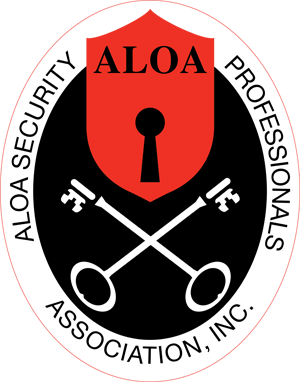While rekeying a house last week, my customer approached me and inquired as to “when I would be going to Lowes.” I replied that I had no need to go to any store, and he wanted to know “how” I was changing his locks. I explained that the process was relativly simple: Remove the cylinders from the locks, re-pin the plugs in the cylinders to match the new key, and then put the plugs back into the cylinders. Test the new key in the cylinder. The last step was to replace the cylinders in their hardware and reinstall the hardware to their respective doors. For a locksmith, this is basic, bread and butter stuff. It is a PRIMARY JOB of the profession. My customer then told me that his last locksmith went to the store, purchased all new locks, and replaced all of the existing locks with the new ones. I mused that he must have wanted new hardware. Rust, corrosion, discoloration of the finish, that sort of thing. He emphatically said no! He was under the impression that this was the only way to change locks, as this is what his locksmith told him. That’s because his last locksmith was not a locksmith. Remember: If your locksmith wants to sell you new hardware, ask him/her if there are other options. If options don’t exist, your locksmith is a handyman; nothing more. All locks can be taken apart and re-keyed.
Sadly, this is pretty common in Tallahassee. Out of town companies post ads on Craigslist, and hire inexperienced kids, or “sketchy” characters (and of course, probably some well intentioned people looking for work). These people receive minimal, or no, training, and are immediately sent on jobs. They go to whomever clicks on their “locksmith” ads, or “directories,” or “locksmith listing service” internet listings, It is possible (quite likely, actually) that the work these folks are doing at your house is the very first attempt at doing such work.
Learning a new skill requires practice, and there is definitely a “learning curve” that exists with most jobs. Don’t let your house, your place of business, or your vehicle be subject to this learning curve!
So how can you avoid inexperienced or shady characters working on your locks? Sure, one would think, “I’ll jusk ask.” Not that easy to do. Firstly, look at the fancy internet postings these operators have. They look legit. They want to look legit. The phone operator doesn’t know any of the technicians, and if there was a problem, he/she certainly wouldn’t tell you about it; no, lying is the standard operating procedure for these folks, anyway!
There are several important things you should do when you call a locksmith. Firstly, immediately, ask the person answering your call where their locksmith business is located. Ask for the specific address. Ask for a specific call back number. You need a local, experienced locksmith; not some local kid working for people in another state.
When your locksmith arrives:
- Is he/she driving an unmarked vehicle? This a BAD sign. A REAL locksmith has a marked vehicle, whether it be a van, or a car, or a truck. It should have the name of the locksmith company and the phone number prominently displayed on the vehicle.
- Is he/she driving a vehicle with the word “locksmith” on it, and nothing else? this is almost as bad as an unmarked vehicle.
- Does he/she have other people in the vehicle, who are there “for the ride?” That’s a bad sign, although if one is along for training that might be something to take into consideration. Otherwise, well, that is not a good thing.
- Does he/she have a uniform, or a locksmith id card, or something that indicates the person is locksmith? This is important.
There are a lot of things to look for when selecting a locksmith, and although I could easily go on and on about High Quality Locksmith’s credentials, community ties, and professional affiliations, etc. , I will just summarize that a good locksmith company will have those 3 aforementioned elements, in addition to substantial training and experience. Often, in the heat of the moment, in a panic, you’ll call the very first “locksmith” listing that pops up on your Google search. There are many people counting on you to do just that.




